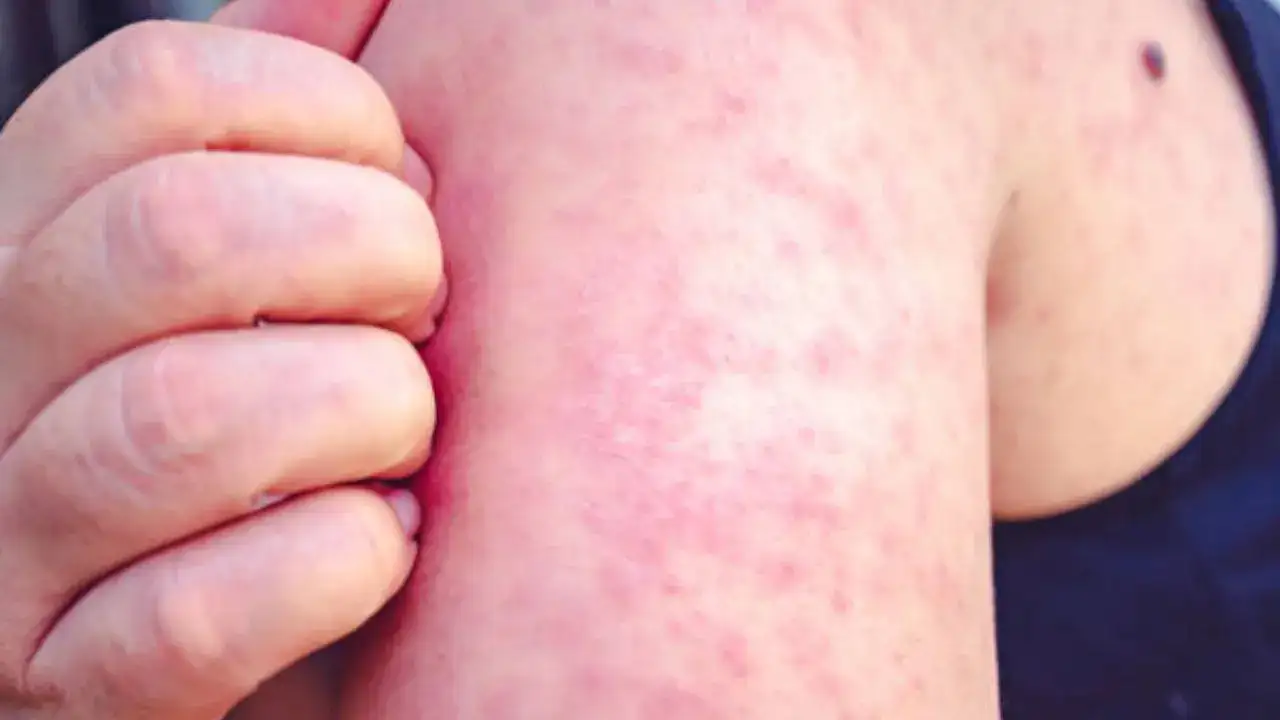
Texas Measles Outbreak Surges Past 500 Cases: Do You Need A Measles Vaccine Booster? (Image Credits: iStock)
The United States is currently facing a growing measles outbreak, with over 700 confirmed cases reported this year across at least 24 states, according to the Centers for Disease Control and Prevention (CDC). Texas has been one of the worst-hit states, recording 561 cases so far, as per the latest data from the Texas Department of State Health Services (DSHS).
In just the last five days, 20 new cases were reported in Texas alone, and at least 58 people have been hospitalised due to complications from the disease. The DSHS has warned that because measles is extremely contagious, more cases are likely to occur both in the current outbreak zones and surrounding communities.
Most Cases in the Unvaccinated
One of the most concerning trends is that 97 per cent of the cases are in people who are unvaccinated or have unknown vaccination status. In 2024, there were 285 cases of measles in the US. Just four months into 2025, the country has already seen over 800 confirmed cases, showing how rapidly the disease is spreading.
Tragically, the outbreak has led to two child deaths in Texas, both of whom were unvaccinated. In another case, an unvaccinated adult in New Mexico tested positive for measles after their death, although the final cause of death is still under investigation. These are the first recorded measles-related deaths in the US since 2015, according to CDC records.
Measles: A Preventable but Dangerous Disease
Measles is a highly contagious airborne disease. It spreads easily through coughs, sneezes, and even just being in the same room as an infected person. The disease can cause serious health issues, including pneumonia, brain swelling, and even death.
But there’s good news: measles is preventable through the MMR vaccine, which protects against measles, mumps, and rubella. This vaccine is usually given in two doses during childhood. According to the CDC, two doses are 97 per cent effective in preventing measles.
The vaccine program had been so successful that in 2000, measles was officially declared eliminated from the United States. However, over the past few years, vaccination rates have declined, leading to a resurgence of measles outbreaks.
Why Adults Should Consider Vaccination Too
While the MMR vaccine is typically given to children, adults who missed the vaccine during childhood can still receive it. Dr Ravi Jhaveri, a pediatric infectious disease specialist at Northwestern University and Lurie Children's Hospital, says that getting vaccinated at any age is better than remaining unprotected.
Dr Jhaveri explains that once you receive two doses, your immune system creates long-lasting antibodies, which can protect you for life. A third booster shot is not generally recommended during an outbreak unless there's a special case.
“In general, if you’ve had two doses, you’re well protected,” Dr Jhaveri says. “The problem is not the people who’ve been vaccinated. The issue is that large groups of people haven’t received even the first dose.”
Are Boosters Needed for Measles?
Unlike the flu or COVID-19, which change genetically and require annual shots, measles is more genetically stable. This is why a two-dose MMR vaccination schedule is enough for most people.
However, older adults vaccinated before 1968 with an older version of the measles vaccine may not be fully protected. The CDC advises receiving at least one dose of the current live attenuated measles vaccine, as the older inactivated version (used between 1963 and 1967) was less effective.
Dr Jhaveri adds that while immunity may slightly decline with age, only about 3 out of 100 people who’ve had both doses will get measles if exposed. Even in rare cases where vaccinated individuals do get the disease, symptoms are usually mild, and they’re less likely to spread it.
On the other hand, 90 per cent of unvaccinated people who are exposed will likely contract measles.
What Can Be Done?
Health officials are emphasising the importance of vaccination, especially in communities where misinformation or vaccine hesitancy has led to lower coverage.
“The key issue is not that vaccinated people need a third dose,” says Dr Jhaveri. “It’s that too many people haven’t received even the first two doses. That’s where the focus needs to be.”
The CDC continues to monitor the situation and encourages everyone, especially parents of young children and adults unsure of their vaccination history—to consult their doctors and make sure they are protected.
Get Latest News Live on Times Now along with Breaking News and Top Headlines from Health and around the world.
